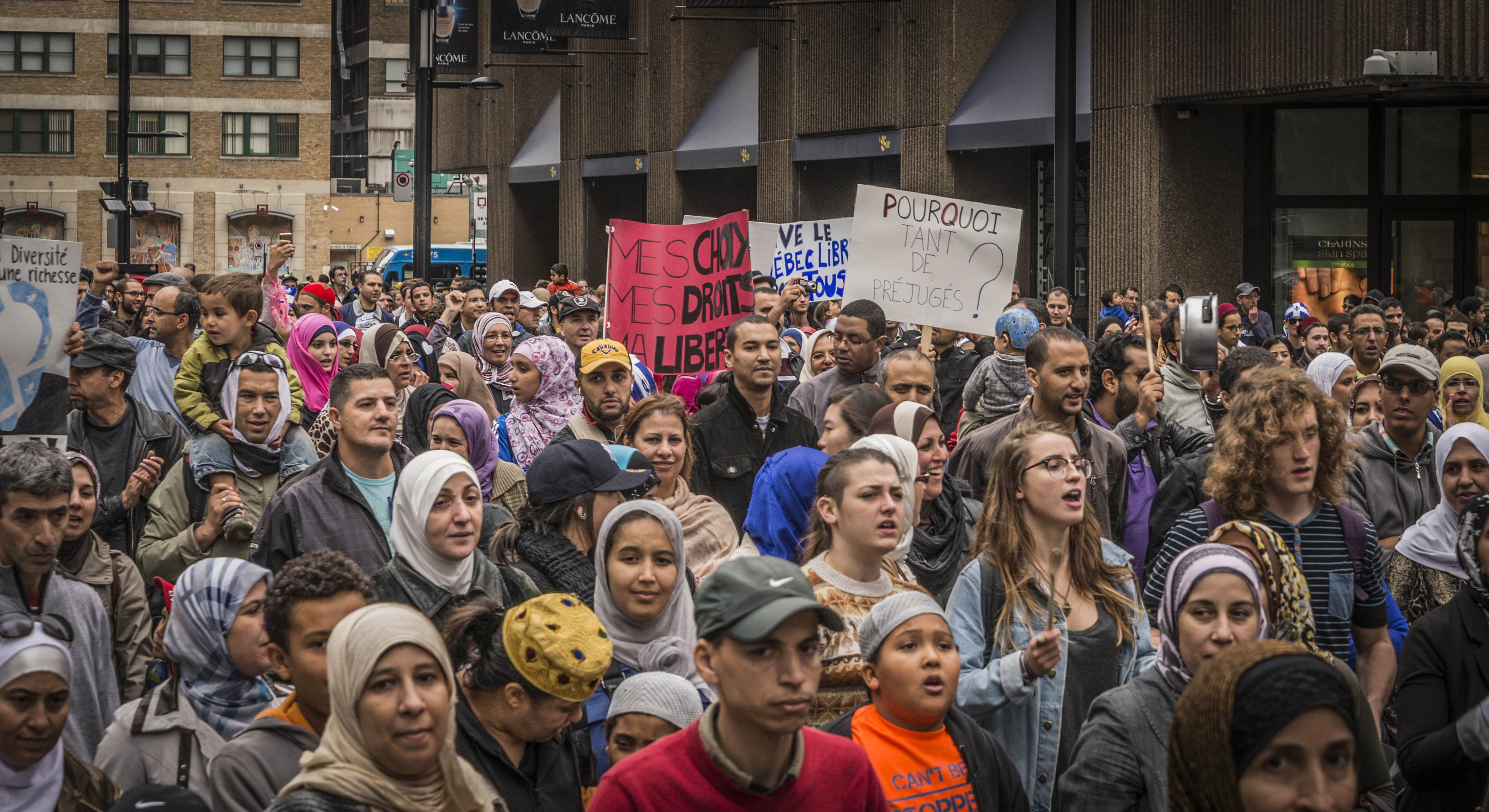Have a question about the Québec election? Want to know about where the parties stand on a particular issue? Let me know @NoLore.
Québec’s provincial election is nearly a week old.
The mainstream Canadian media has zeroed in on two issues during this campaign: the fight over the Québec values Charter and the spectre of a referendum. This framing has been exactly how the Parti Québecois has hoped the debate would spin out, at the expense of ignoring other, more pressing issues.
Back in the fall, many people predicted that an election would be called before the PQ had to present a budget this year. Running an election on their economic record would probably not land them a majority. Instead, the PQ has worked to make the values charter into the issue on which votes are cast.
With a majority of Québecers polled in support of the values charter, it’s a gamble that might pay off. Dividing people based on fears of the other is an age-old strategy in Canadian politics and the charter has given a boost to the party.
The charter outlines how Québec as a secular society should be organized. Considering the influence played by the Catholic Church in politics, it shouldn’t surprise anyone to see that secularism remains an important issue today. The most criticized aspect of the values charter is the ban on the wearing of religious symbols for public sector workers. This broad spectrum includes professors, teachers and healthcare workers. While the PQ has advertised that this would prohibit the wearing of large crosses as much as it would prohibit wearing hijab, the gendered and racial implications are obvious.
The charter would not remove the Crucifix from the National Assembly and it won’t stop public money from partly funding private schools. Religious symbols that are everywhere in Québec society (from the cross atop Mont Royal, to the altar and tabernacle built into rock in a park near my house, from the names of saints that grace towns and cities across Québec to the image of St-Jean-Baptiste etched into the side of the public school St-Jean-Baptiste on Rue St-Jean in the quarter of St-Jean-Baptiste here in Québec City) will not be affected by the Charter.
Outside of Québec, the charter has been used to whip up anti-Québec sentiment.
The PQ wants to use this rhetoric to demonstrate that the Rest of Canada thinks that Québecers are a backwards lot. The recent appointment of Pierre-Karl Peladeau is a good example: his media empire Quebecor does the most to whip up anti-Québec sentiment in Canada’s English-language media. Rather than building a progressive movement of independence, PQ backers rely this anti-Québec sentiment to try and boost support for sovereignty in a nationalist frame. PKP, a notoriously anti-union businessman, is running for the PQ in the riding of St-Jerome, north of Montreal.
While it might be true that nothing calms vicious debate than like the ominous stare from a crown of thorns of a tortured man, hanging above the speaker’s chair, these omissions demonstrate the hypocrisy of the PQ’s charter. It’s a reminder people that it’s more of a populist tool to win the PQ their majority than anything else. With just 13 more seats needed for a majority, small boosts in support could make the biggest difference.
The PQ is playing the worst kind of populist politics and the charter is a distraction but it’s an important starting point to sort out the context in which this election has been called. An election on April 7 has stopped Pauline Marois from having to testify in front of a Parliamentary Committee examining the role her husband Claude Blanchet may have played in a investment made by the Fonds de solidarité FTQ into a fund managed by Blanchet. Thanks to the charter, Marois might just get her majority while also avoiding investigation by this committee.
Well played, Pauline. April 7, we’ll see if this strategy pays off. As today’s news has been dominated by criticism the PQ for PKP’s candidacy, the charter’s staying power might be threatened.
Image: wikimedia commons



